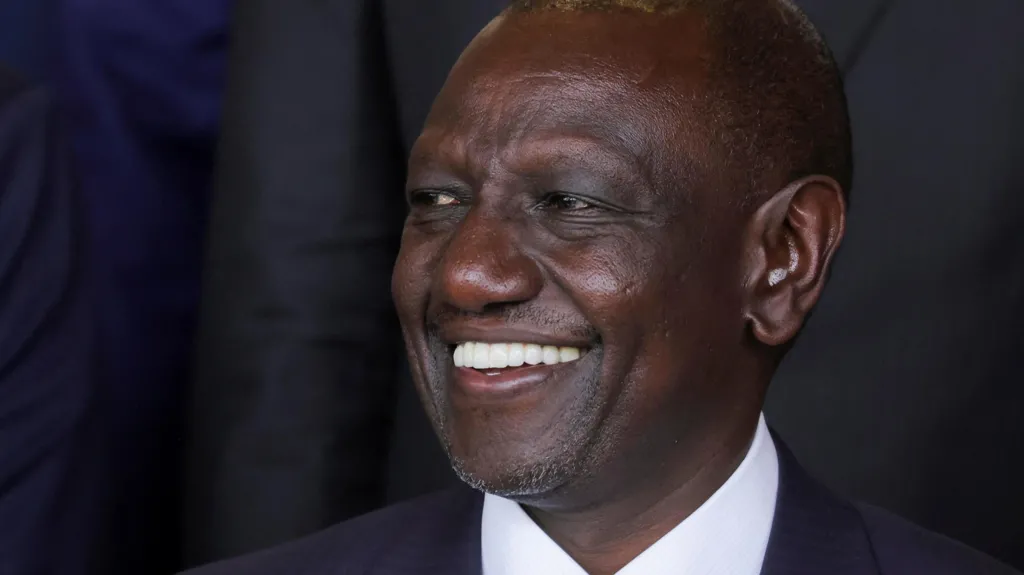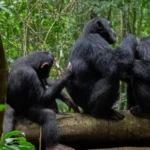Kenya’s President William Ruto has acquired an unusual number of nicknames over the years, ranging from the affectionate to the critical. These monikers, which include “Hustler,” “Chicken Seller,” “El Chapo,” “Deputy Jesus,” and “Zakayo,” reflect how public perception of the president has evolved from admiration to growing frustration. Each name tells a story about how Kenyans relate to their leader, capturing moments in his political journey and the changing social and economic landscape.
Ruto has acknowledged this growing trend of renaming, even joking that the public is “finishing” him with all the titles. He recently spoke at a rally in Nairobi: “You have given me so many names. I had the name William Kipchirchir Samoei Ruto. You added Survivor, Zakayo. Now you are in Kasongo. Will you stop at 10, or should I prepare for more?” The crowd, amused and defiant, responded that more names were coming.
Before he was elected president in 2022, Ruto earned nicknames that built his public image as a relatable, hardworking Kenyan. “Hustler” became a powerful symbol of his rise from humble beginnings. The term, used in Kenyan slang to describe someone who survives despite tough conditions, resonated with many. “Chicken Seller” referred to his childhood days selling poultry by the roadside and further cemented his connection with the common citizen. Political analyst Prof Herman Manyora explains that these early labels played a key role in his electoral success, stating that “names stick with Ruto” and these particular ones helped sell him to the public.
However, Ruto has also been no stranger to controversy. One earlier nickname, “Arap Mashamba” (son of farms), emerged from concerns over his vast land ownership and a 2013 court ruling that required him to return 100 acres of land allegedly grabbed during post-election violence a charge he denied.
His frequent use of Bible verses led to the nickname “Deputy Jesus,” but it’s since his ascension to the presidency that the nicknames have turned more critical and creative. “Zakayo” (Swahili for Zaccheaus, the tax collector from the Bible) began trending after Ruto’s administration introduced unpopular taxes, sparking widespread anger. Many who once believed in the “Hustler” narrative now feel betrayed, accusing him of failing to deliver on campaign promises.
The economic strain triggered mass protests, particularly among the youth. Last year, weeks of demonstrations in Nairobi some of which turned deadly, were organized in response to a proposed tax hike. The chant “Ruto must go” became a rallying cry, and now “Must Go” is used as yet another unofficial title for the president.
The name “Vasco da Ganya,” a clever play on Portuguese explorer Vasco da Gama and the Swahili word “danganya” (to lie), mocks the president’s frequent foreign trips. Another moniker, “Kaunda Uongoman,” combines his preference for the Kaunda suit and “uongo,” meaning lies, to question his honesty.
Despite these verbal jabs, Ruto appears unfazed. Government spokesman Isaac Mwaura said the variety of nicknames merely reflects how people see him and argued that the administration’s tax policies are necessary for fixing the economy. According to Mwaura, Ruto is “very hands-on and doing his best to transform the economy,” and it’s normal for leaders to attract many nicknames based on their actions and traits.
However, not all reactions to the satirical content have been light-hearted. Officials have condemned AI-generated images and cartoons mocking the president, especially those portraying him in a casket, as “distasteful.” There have also been reports of abductions targeting creators of such content, which critics say reveal an underlying intolerance within the government.
For many young Kenyans, these nicknames serve as a coping mechanism. University student Lachon Kiplimo said that while he still supports the president, some of Ruto’s promises—such as a machine to make a million chapatis daily for school children—are unrealistic. This particular promise led to the sarcastic use of “El Chapo,” linking Ruto’s “chapo” (chapati) pledge to the infamous Mexican drug lord.
Fellow student Margaret Wairimu Kahura believes that the flood of nicknames is a reflection of a nation in pain. To her, the nicknames are a way for Kenyans especially the youth, to voice their frustration. She noted that no other Kenyan president has been subjected to this level of ridicule, calling it “unique, but in a bad way.”
While previous leaders like Uhuru Kenyatta and Mwai Kibaki also had nicknames such as “Kamwana,” “Jayden,” and “General Kiguoya, none received as many or as cutting as Ruto. The explosion of social media, with its endless thirst for viral content, has likely accelerated the trend.
Yet behind the humor and satire lies a serious message: the nicknames are symbolic of unmet expectations and growing disillusionment. For many Kenyans, each new label is a mirror reflecting the widening gap between presidential promises and the lived realities of the people.












Leave a comment